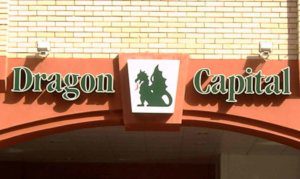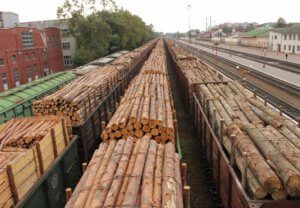
Ukrainian banks in 2018 would likely to see a record profit in the past 10 years, First Deputy Governor of the National Bank of Ukraine (NBU) Kateryna Rozhkova said at a press conference in Kyiv. “By the end of 2018, the sector will see profit and, according to our preliminary estimates, this profit could be a record in more than 10 years,” she said, recalling that for the 10 months of this year, banks posted about UAH 15 billion in net profit. According to Rozhkova, the respective result is due to both an increase in operating profit – interest and commission, and a decrease in sending funds to reserves.
“Interest income continues to be the main source of bank profits against the background of a significant decrease in the cost of borrowed funds over the past few years, cleaning up unproductive assets, as well as enhancing lending,” the first deputy governor of the NBU said.
The growth of commission income, she said, is due to the intensification of consumer lending and the development of banking technology.
In turn, Director of the NBU financial stability department Vitaliy Vavryschuk said that banks, which account for more than 40% of the sector’s assets, are currently operating with a return on capital of more than 30%. “This has never happened in the history of the Ukrainian banking sector,” he said. Moreover, the NBU predicts that the profitability of the banking sector will continue to increase next year, primarily due to the completion of work on cleaning up balance sheets and reducing the amounts sent to reserves. Speaking about the risks of the banking system, Rozhkova noted the short term of the resource base. “Due to significant volumes of high-quality and highly liquid assets on the balance sheet of banks, this situation does not cause concern to the regulator, but given the expected increase in lending next year – these discrepancies in terms of assets and liabilities can carry a risk, and therefore will encourage banks to extend the resource base,” she said.
One of the incentives, according to the first deputy governor of the central bank, is the net stable funding ratio (NSFR), which approval is expected to be finalized by the NBU with banking community in the first half of 2019, after which it will be gradually introduced. According to Vavryschuk, the short term of deposits is mainly the result of the crisis that has passed, after which the share of funds in the current account has significantly increased. “Currently, more than 62% of the total funding of banks is liabilities for up to one month. If you look only at the hryvnia segment, this share is about 76%,” he said. Considering the fact that banks over these short liabilities have long-term assets, the NBU notes the systemic importance of equalizing the terms of assets and liabilities.
“Banks should create more incentives [for extending the term of deposits], perhaps through interest rates. Even a minor extension – up to three from one month, will have a significant fundamental effect on the stability of funding of the banking sector,” Vavryschuk said. In addition, Rozhkova noted the continued high level of dollarization of some banks, especially with Ukrainian private capital, among potential risks.
“Our calculations show that with significant shocks, the risks of these banks are increasing, so we continue to strongly recommend banks to reduce the level of dollarization, especially in the active part of the balance,” Rozhkova said.
The first deputy governor of the NBU also said that in 2019, new stress tests of banks would be held. In addition to the standard approach, the National Bank intends to pay special attention to the quality of consumer loans. In addition, the NBU intends to review the regularity of these tests (now they are held annually).

Zhydachiv Pulp and Paper Mill (Lviv region), which resumed operations in May 2017, made products for UAH 411.86 million in January-November 2018.
According to the UkrPapir association, this month the plant produced 4,280 tonnes of paper and 27,180 tonnes of cardboard (including corrugated paper), as well as 15.85 million square meters of corrugated boxes.
Another enterprise of the holding, Izmail Pulp and Paper Mill (Odesa region), produced goods for UAH 177.88 million in January-November 2018, which was 49% more than a year ago. The mill increased package cardboard output by 31.5%, to 13,370 tonnes and corrugated box output by 25.7%, to 16.59 square meters.
Zhydachiv Pulp and Paper Mill, once one of the top three enterprises in the industry and the only manufacturer of newsprint in Ukraine at that time, was put into operation in 1951, in the best 2000s its output reached UAH 500 million. It had been standing idle since September 2014 till May 2017.

President of the European Business Association (EBA) Tomas Fiala, his group of companies Dragon Capital and its employees contributed a total of UAH 22.6 million for charity and sponsorship purposes in 2018 to support Ukrainian projects for economic and social development, while in 2017 over UAH 10 million was sent for these purposes.
According to a press release of Dragon Capital issued last week, the Centre for Economic Strategy, an independent policy think tank, analytical platform VoxUkraine and its VoxCheck project, the New Leaders National Project, Anti-Corruption Action Centre, Transparency International and other NGOs working to support economic reforms, improve the business climate and help fight corruption in Ukraine together received close to UAH 12 million compared with UAH 6.1 million a year ago.
More than UAH 4.9 million was raised to finance the development of children’s hospital Ohmatdyt, help patients fighting cancer, buy a hemo-analyzer for the Western Ukrainian specialized children’s medical center (Lviv), support orphanages, repair a kindergarten, and sponsor the IWCK Charity Bazaar.
Last year Dragon Capital said in the report that the group contributed some UAH 1 million to Army SOS and IWCK Charity Bazaar. The group said that this year Dragon started to cooperate with Veteran Hub, Ukraine’s first open space for veterans of the war in eastern Ukraine and NGOs serving to protect their rights, as well as with other veteran associations in order to facilitate former soldiers’ social adaptation, particularly through employment.
According to the press release, over UAH 5.1 million went this year (UAH 3 million a year ago) to finance the Ukrainian Emerging Leaders Program at Stanford University, the Prometheus educational platform, the GoGlobal program aimed at promoting studies of foreign languages in Ukraine, the Ukrainian Academy of Leadership, etc.
According to the press release, Dragon Capital also donated UAH 0.6 million to support a public organization, whose mission is to preserve and promote the cultural, historical and archaeological heritage of Ukraine; the Lviv Media Forum, etc.
Dragon Capital group of companies, founded in 2000, is one of the largest in the Ukrainian investment market. Fiala said that in the past three years jointly with partners from the EU and the United States the group invested almost $500 million to Ukraine.

The European Union has called on Ukraine to lift the moratorium on the export of round timber, as well as introduce administrative and institutional reforms and ensure the functioning of an efficient and transparent administrative system. “The EU encouraged Ukraine to continue fighting vested interests in order to improve the business and investment climate and eliminate swiftly trade irritants, such as the wood export ban,” according to the statement following a meeting of the Council of the Ukraine-EU Association, held in Brussels.
“Particular focus should be on effective and timely implementation of the Deep and Comprehensive Free Trade Area, and to further facilitate trade and eliminate technical barriers to trade, including as regards customs procedures, technical regulations, sanitary and phytosanitary systems as well as food safety reform, public procurement and the protection of intellectual property rights,” the report says.
“The Ukrainian side reaffirmed its commitments to technical regulation reform, notably the need to speed up adoption of sectoral and horizontal legislation, including in the area of market surveillance,” it says.
The EU pointed out that “Ukraine shall comply with all prerequisites set out in the AA/DCFTA including incorporating the relevant EU acquis into its legislation, making the administrative and institutional reforms and providing the efficient, effective and transparent administrative system, which are indispensable prior to starting ACAA [Agreement on Conformity Assessment and Acceptance of Industrial Products] negotiations,” it said.